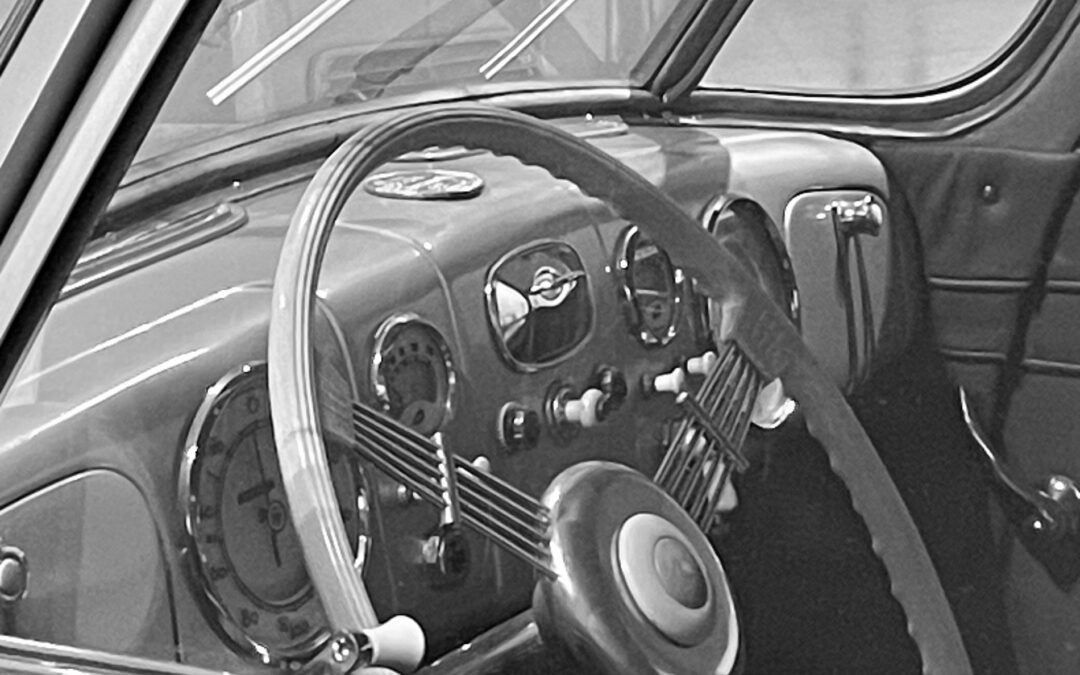I often find myself longing for a period between the 1880s and 1950s. Not that I have any actual basis for my romanticizing of this time, but more the ideology of a pre-digital age. A quick Google search confirms that the digital age began in the ’70s. So we can assume there was a building-up to a height of analog before digital became culturally accessible on a large scale in the ’70s and ’80s.
Socially, there seems to have been a certain gentility in the general population as well, prior to the ’70s. No, I didn’t bother to check if this has actually been studied and reported, so this is utterly ideologically correlational. And again, much of this may be my romancing and watching too many black-and-white movies from the ’30s and ’40s.
I’m not versed enough to construct an argument sorting out a more detailed theory of a fall in social manners with a rise in digital accessibility;
but this pre everything-digital-is-better along with a more manner-minded culture sure is appealing.
I feel like I continually put forward the disclaimer that I’m not a crotchety old luddite whose stories all begin with “back in my day.” But I am a self-described romantic in the sense of believing there is meaning and value (often in the simple and ordinary) that better dictate one’s life than the constant hustle, get-more messaging that seems so easily accepted and drives much of current society.
I think I can boil down my concern to the concept of a distancing from nature.
As we sit in our increasingly efficient, comfort-controlled environments, there is an obvious distancing from nature. Michael Easter captured this well in his book The Comfort Crisis. Our increasing reliance on digitality seems to have coincided with a heedlessly welcomed relinquishing of effort and discomfort (wherever possible).
Why can we not be cold when it’s cold and hot when it’s hot? There are myriad examples of how comfort creeps into our lives, from the newest Skechers that don’t require you to bend over when putting them on to the convenience of that texted verification code being one click away from automatically populating a webpage field. It’s all so damn easy. Think about what happens if you lose your phone. Just how encompassing is it that you have no ability to do things? Or worse, that you have no idea even what needs to be done—getting to that new coffee shop in another town for your meeting, determining where to have lunch, finding a date, knowing what’s going on in the world. Just take a look at the most recent concern about your calculator’s history to see how much non-digital ability we’ve lost.
Hell, stand outside and tell me what direction is north. It used to be we could navigate across the oceans by looking at the fucking stars!
I’ve struggled with this blog post for a while, even though the concern has been rattling in my head for years. This topic is both so pervasive and so nuanced at the same time. AND there are incredible advancements we’ve made. Like most things, it’s not just a good-or-bad dichotomy. And doesn’t that just make the very point about looking for the easy?
We want things to be categorized as good or bad so we can quickly have information to act on. Because that’s easy. Discernment is tough.
It requires time and effort, two things at odds with the ever-increasing efficiency by which we prioritize acting in the world. This is the pervasiveness. We don’t need to carve directions on stone tablets and carry them around. But must we lose all more primitive (I’ll argue more substantial) means of doing things? Where is the balance? This is the nuance.
There was an article about the ancient Romans using concrete in construction that was self-healing. Until recently, apparently, we couldn’t figure out how this was done. What happened to that knowledge (which, by the way, seems superior but probably not ‘cost-effective’)? We praise time and money savings as the end-all, be-all of prioritization instead of recognizing them as appropriate priorities—sometimes. What about enjoyment?
Given the importance of this topic (according to me) and how clunky this initial foray is, I’m sure I’ll come back to it. I believe it’s a central aspect of a lot of our current dissatisfaction and particularly relevant in a therapeutic setting. And I do think most people would get a vague sense of this as a problem when considered.
Ok, let’s get back on point.
Here’s an article explaining that buyers want more actual buttons and switches in their cars—analog: it’s desirable. Why??
One specific suggestion I’ll make is that:
analog remains natural, whereas digital does not, and this naturalness is desired (because it’s more True) even if we’ve worked hard to ignore it. So how is it natural?
Analog means are not reversible.
Digital means are—and continue to be—more easily reversible. Think about the “Undo Typing” option under the Edit menu. Easy, quick, even multiple undos. Anyone ever use copy/paste? Now think about writing a letter (actually taking a real fucking pen to a real fucking piece of paper), getting halfway through, and making an error. Not easily reversible. What’s done is done. This seems to mimic how nature is—the laws of thermodynamics are pretty reliable. When we break something to make a change, it is not reversible. The change remains. I get that this might apply digitally also on some unrealized level. But in the level of our actual experience of the world, it is the case.
I’m far from a philosophical pragmatist, but I have to admit there is a certain persistence of consistency in the way we interact with the world. I mean, each morning when I get out of bed, my foot connects with and is supported by the floor without fail.

